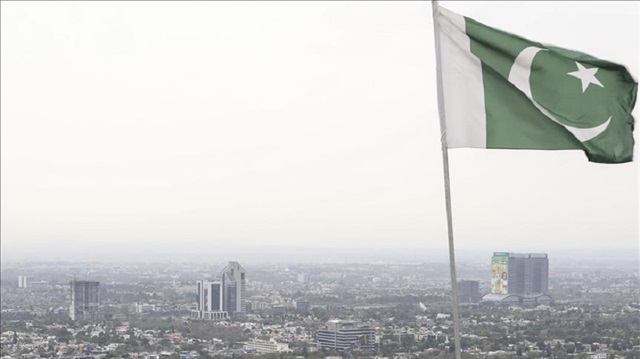
Khan appealed to Pakistanis working in the US, EU and the Middle East to wage a “dam Jihad” by donating at least $1,000 each to a Dam Fund
Pakistan’s newly elected government is facing what could be its biggest challenge as an unprecedented water shortage threatens to become a major crisis.
Prime Minister Imran Khan, who was sworn-in as the country’s 22nd premier on Aug. 18, is urging some 9 million overseas Pakistanis to “donate generously” for the construction of dams to cope with the country’s growing water requirements. But experts say the move is not viable.
Full-page newspaper advertisements and special broadcasts aired on local television stations are exhorting mainly overseas Pakistanis to contribute for the construction of dams in the next five years, including the long-stalled Diamer-Bhasha Dam, construction of which is in the preliminary stages on the Indus River in the northern Gilgit-Baltistan region near the border with China.
Khan, who took the reins of the South Asian state in July, appealed last week in a televised message to Pakistanis working in the United States, Europe and the Middle East to wage a “dam Jihad” by donating at least $1,000 each to a Dam Fund set up by the country’s Chief Justice, Mian Saqib Nisar.
Warning that the country might face a complete drought by 2025 if new dams are not built, Khan said “we have 30 days’ water storage, whereas country like Egypt, which once faced a more acute water shortage, has a storage capacity of 1,000 days”.
Khan’s appeal has so far received a warm response not only from abroad but within the country, accumulating over 3 billion Pakistani rupees (nearly $30 million) in a week-long period.
Pakistan’s powerful army on Monday donated one billion rupees (over $8 million) – the highest single contribution so far.
But the so-called euphoria doesn’t impress economists and water experts, who view the move as “unviable”.
“Construction of big dams is a very serious matter. They cannot be built through alms and donations,” Dr. Kaiser Bengali, the country’s leading economist, told Anadolu Agency.
The actual estimated cost of the project, conceived in 2006, was $12.6 billion which, according to experts, currently stands somewhere around $16 billion.
“Governments are not run like that. How much will we be able to accumulate? [Maybe] 10 billion or 20 billion rupees, whereas it requires 1,600 billion. There are several ways of funding such huge projects. [The government] just needs to be innovative,” said Bengali, author of the book ‘The Politics of Managing Water’.
Shahab Osto, a Karachi-based water expert, shared a similar view.
“Building dams is such a costly business. Khan may have an optimistic approach mainly because of his popularity among overseas Pakistanis. But such huge and costly projects cannot be built simply on the basis of popularity and optimism,” Osto told Anadolu Agency.
According to statistics from the Ministry of Water and Power, Pakistan receives 145 million acre-feet of water every year, but only 14 million acre-feet is preserved. The country wastes 25 billion rupees (around $200 million) worth of water every year.
Pakistan gets most of its water from three western rivers – the Indus, Jhelum and Chenab – under a 1960 water treaty with longtime rival India brokered by the World Bank.
The waters of the eastern rivers the Sutlej, Beas and Ravi have been allocated to India under the agreement.
Bengali suggested that the government should allocate 20 to 25 percent of the total expenditure as seed money and hand over the project to a company or group of companies through international bidding.
“The best way is to bid the project on a BOOT (build-own-operate-transfer) basis, making the successful bidder responsible for arranging the remaining amount. The project may be given to that company against revenue of power and water generation for the next 30 years,” said Bengali.
In this way, he added, the government would not have to spend even a single penny on maintenance of the dam for the next 30 years.
However, he said he prefers conservation as a far better option than the construction of dams to cope with water requirements.
“I want to say on record that there is no shortage of water in Pakistan. The only issue is poor water management and distribution,” Bengali said.
“Almost 90 percent of our water is used for agriculture purposes, of which 40 percent is wasted because of primitive ways of cultivation. If modern-day technology and tools are used, we can save this 40 percent of water”.
Osto agreed with Bengali, saying instead of building huge dams, which, according to him, are environmentally hazardous, water conservation is a much better and simpler idea.
“The politics of big dams is complicated, rather a failure in Pakistan,” Osto pointed out, referring to a chronic confrontation over water-sharing between different provinces.
“Therefore, the government should not waste its energies and money on the construction of big dams but focus on small dams and conservation projects.”
However, he disagreed with Bengali’s contention about water abundance in the country.
“There is a water dearth in Pakistan which is projected to become more severe in the next five to ten years. But yes, if we plan and carry out an effective conservation policy, a huge quantity of water can be conserved.”














